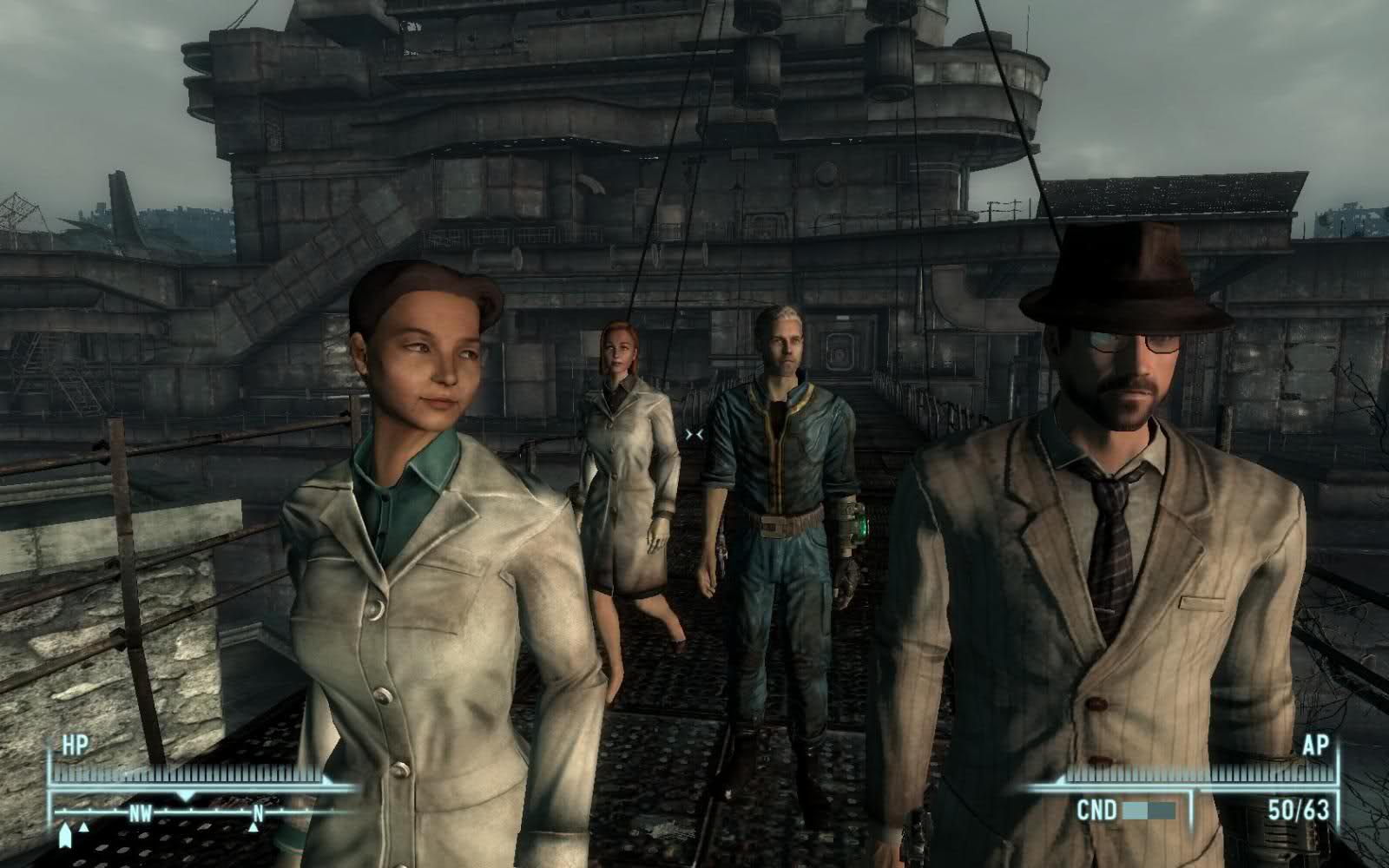Editor’s note: Everybody loves a good glitch story, but Allistair makes the case for intentionally bad A.I. as the next unexplored frontier in game design. Crazy enough to work, or just regular crazy? -Demian
As much as we collectively pan bad A.I. and glitches, they’ve all made us laugh at one time or another. Some of my favorite moments involve me breaking a game — or the game breaking all by itself.
Star Wars: Masters of Teras Kasi was half-broken to begin with, and the source of one of my most cherished game memories. A friend and I were playing another not-so-noteworthy round in that terribly janky fighter, when all of a sudden Luke kicked Leia, and she somehow shot off at lightspeed across the map and into the distance, endlessly spiraling and growing fainter by the second.
“Screw this game,” we imagined her saying, as she embarked on her spirit journey. We laughed, and didn’t stop for a good while. And we continued to play, hoping for another unscripted moment of hilarity that never came. Masters of Teras Kasi turned out to be a run-of-the-mill fighter rather than the embodiment of random physics and A.I., and I’ve been waiting for the latter ever since.

About to happen: nothing intentionally fun.
I eventually realized that the problem (well, one of many) with Masters of Teras Kasi was that, despite its universal shoddiness, it wasn’t as likely a conduit for random behavior as open-world games such as the Grand Theft Auto series, where these sort of mishaps are a lot more frequent.
Sometimes, when the character you’re talking to randomly spawns from the sky and falls to his death, well, that can be a mood breaker in a game like Fallout 3. But it’s also a special sort of fun. The problem is when you go looking for it: You can wait endlessly for lightning to strike twice at the same spot. Sure, Garry’s Mod and Crysis‘ dev tools allow us to manipulate the game to do things we wouldn’t see otherwise, but there is something special about these scenarios happening naturally, without any player input.
[video:http://www.youtube.com/watch?v=jQY6v-eOchU 425×344]
When Crysis goes wrong. Good luck recreating this one!
Dwarf Fortress isn’t a game I’d ever attempt to play, but I’m still completely grateful for its existence — reading other players’ accounts of Dwarf Fortress misadventures is a joy. A friend of mine lost one of his villagers; the dwarf was in a well (with water) but died of thirst because he knew alcohol was nearby, so refused to drink the water.
Scott Sharkey, of 1UP’s Good Grief (now Oddcast) podcast, tells Dwarf Fortress stories that make me laugh until it hurts. The most memorable has to be his tale of how his entire dwarf army died except for a newborn infant, who was so depressed by the endless sprawl of corpses that he dragged himself to the nearest weapon and committed suicide. All of these hilarious (albeit morbid) events are a product of the game’s unorthodox A.I., which assigns irrational wants, needs, and fears to characters.
Dwarf Fortress could be the golden god of gaming, except more often than not it’s a study in frustration and minimalist visuals — I mean we are literally talking ASCII-level graphics. It takes a whole lot of imagination on the player’s part to fill the space between those pixels.

Our minds are not yet able to process the graphical fidelity of Dwarf Fortress.
Let me know if I’m alone here, but what is funnier: Tim Schafer’s cartoon logic and humor shoe-horned in a genre exercise, or watching a car explode in Wheelman followed by the passenger exiting unscathed and casually walking away? Schafer’s writing is certainly clever enough to make me crack a smile, but it’s a similar experience to watching a cartoon. This sort of linear thinking is what keeps us away from, say, randomly spawning serial killers in Grand Theft Auto 4, impromptu orgies in Fallout 3, or a flash mob of beggars that trying to drag you down in Infamous.
I’m aware that these games are far too self-obsessed with their atmosphere and “bigger is better” mentality to stoop so low as having a laugh at dysfunctional A.I., but isn’t there a space for games that do this and do it well? You know, like a Dwarf Fortress made for PS3, or a shooter where everything (outside of the controls) is hilariously, intentionally janky and unrealistic.
Maybe it’s hard for developers to think within the constraints of video games alone, without also considering the constraints of other, non-game mediums. Perhaps games try too hard to be ‘cinematic’ — much like films have become ‘video gamey.’ (Is it me, or was Avatar’s finale ripped directly from a boss fight in a Capcom classic?)

“Where should we bone this time, guys?”
So, indie developers (you are the ones that matter now) reading this article, let these words inspire you, and help you re-evaluate the real moments in games that make you crack a smile. Stop being so obsessed with realism, and look at the bigger picture that games can offer. Video games are capable of their own comedic style, not based on the crutch of corny dialog and zany characters, but on a straight man in an askew world.
We’ve seen glimmers of this in Max Payne, God Hand, and the Metal Gear Solid series, but they’re more examples of video game parody than a realization of a true comedic genre in our gaming space. We’ve become hot-wired to complain about awkward A.I. in games, but deep down it amuses us. Stories of A.I. mess-ups and glitches are infectious; told with an enthusiasm usually reserved for “OMG Uncharted 2 is awesome”-esque hyperbole.
In a medium with limitless possibilities, isn’t it a bit narrow-minded to think of what time period and place we haven’t created yet, instead of what NPC ideologies, random conditions, and world scenarios we haven’t explored? I hope for a future inspired by big head mode, randomly freefalling Wasteland bums, and suicidal dwarfs. Let’s explore a world we wouldn’t ever want to inhabit, instead of the world we already know.
Still not a convert? Fire up YouTube and search for “funny glitch.”
VentureBeat's mission is to be a digital town square for technical decision-makers to gain knowledge about transformative enterprise technology and transact. Learn More
